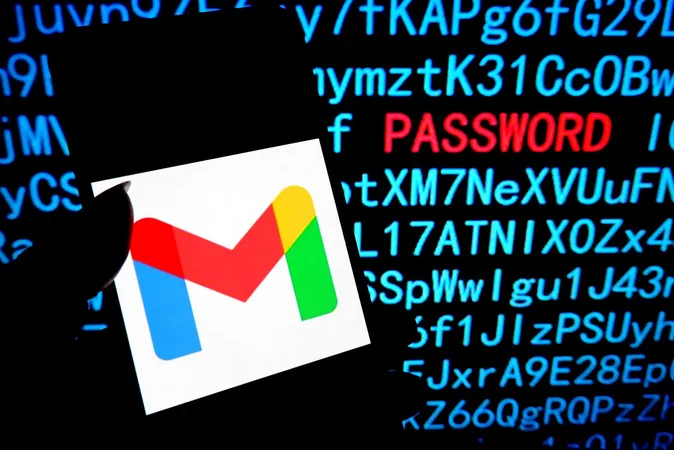
Gmail Under Siege: 4 Critical Strategies to Safeguard Your Email Account
2024-12-16
Author: Ming
December 16, 2024 - As the landscape of cyber threats evolves, Gmail users find themselves increasingly vulnerable to a variety of sophisticated attacks. While not all disruptions in email functionality can be attributed to hackers—some are simply user errors—they remain a prime target for cybercriminals. As we move into 2025, understanding these threats and how to combat them is crucial for protecting your personal information. Here are four major Gmail attack vectors and strategies to help you secure your account.
1. The Deceptive Link Hovering Attack
Phishing attacks via deceptive links are becoming alarmingly sophisticated. Traditionally, users were advised to hover over links to verify their legitimacy, as the true URL would typically appear in the browser status bar. However, hackers are now able to spoof this feature, making it much harder to discern a fake link from a genuine one. To mitigate this risk, it is recommended that users access Gmail through its official app on their smartphones or desktops instead of a web browser. This can significantly enhance security, as the app does not display manipulated link hover text. Always double-check any links before clicking—especially in suspicious emails.
2. The Rapid Response Scam (10-Second Gmail Hack)
One of the most common tactics employed by scammers is the "10-second Gmail Hack". This involves flooding online forums and social media platforms where users report being locked out of their accounts, with unsolicited offers of assistance. These responses are often traps designed to exploit your distress and extract personal information or money. To avoid falling victim, remember: the only trustworthy source for recovering your account is Google itself. If you find yourself locked out, take a deep breath, remain calm, and directly visit Google's official support pages to follow their recovery steps.
3. AI-Driven Account Takeover Attacks
With advancements in artificial intelligence, cybercriminals have begun utilizing AI-generated deepfakes to impersonate trusted figures and extract sensitive information. A recent high-profile case involved a security consultant who was nearly duped by an AI-generated phone call from a supposed Google technician. This highlights how convincing these scams can be, even to experts. The best defense here is awareness: never divulge personal information or account credentials over the phone unless you have initiated the call to a verified Google support number. Be vigilant about any unexpected notifications regarding your account.


 Brasil (PT)
Brasil (PT)
 Canada (EN)
Canada (EN)
 Chile (ES)
Chile (ES)
 España (ES)
España (ES)
 France (FR)
France (FR)
 Hong Kong (EN)
Hong Kong (EN)
 Italia (IT)
Italia (IT)
 日本 (JA)
日本 (JA)
 Magyarország (HU)
Magyarország (HU)
 Norge (NO)
Norge (NO)
 Polska (PL)
Polska (PL)
 Schweiz (DE)
Schweiz (DE)
 Singapore (EN)
Singapore (EN)
 Sverige (SV)
Sverige (SV)
 Suomi (FI)
Suomi (FI)
 Türkiye (TR)
Türkiye (TR)